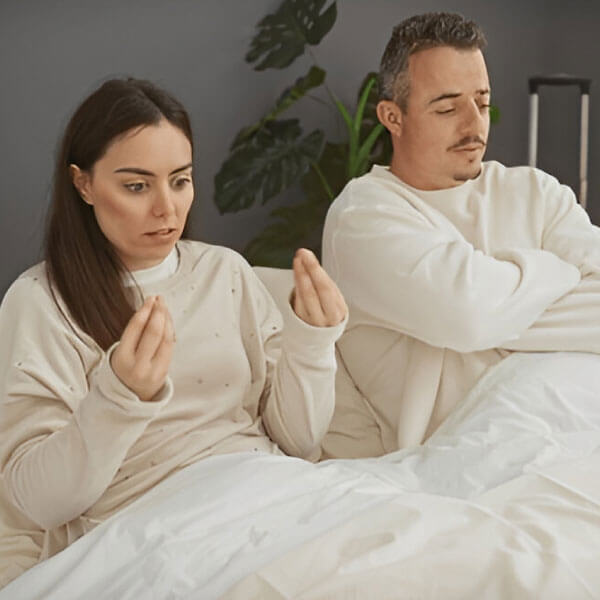
Anorgasmia is when someone struggles to reach orgasm, even with enough stimulation. It can affect confidence and intimacy. At DOXXES on SW Freeway/Chimney Rock, you'll find products and support to help.
What is Anorgasmia?
Anorgasmia means delayed, rare, or absent orgasm despite feeling aroused.
Types include:
- Lifelong or acquired (from past or recent changes)
- Superficial (sensitive to surface stimulation)
- Deep or provoked (needs strong or specific stimulation)
Why Does It Happen?
Mental and emotional causes:
- Anxiety or constant stress
- Past trauma or PTSD
- Fear of pain or pressure to perform
- Poor communication in relationships
Physical causes:
- Infections like yeast or UTIs
- Hormonal shifts (menopause, thyroid)
- Tight pelvic muscles or nerve issues
- Changes from childbirth or surgery
Both mental and physical reasons often work together.
Real-Life Examples and Triggers
Examples:
- A woman needs a vibrator to climax but not with a partner
- A man orgasms but feels pain after, so avoids repeat sex
- One person responds better to deep pressure, not light touch
- A couple loses desire after repeated discomfort
Find your triggers by:
- Tracking moods, techniques, and timing
- Testing different lubricants or positions
- Noting what feels better (or worse)
Who it Affects
Anorgasmia can affect anyone—regardless of age or gender.
- Men may face orgasm issues after prostate surgery or due to medications
- Women might experience it after childbirth or with low estrogen
- Couples can feel disconnected if one partner struggles more
How a Sex Therapist Helps
A trained therapist can:
- Talk through past sexual history or "painful abdomen after intercourse"
- Help reduce anxiety and boost trust
- Offer safe exercises to improve focus and arousal
- Teach how to speak openly with your partner
How to Treat Anorgasmia
Therapy options:
- CBT to reduce worry and improve body connection
- Couples therapy to lower pressure and improve trust
Medical care:
- Pelvic floor physical therapy
- Hormone checks and support
- Pain relief for any physical causes
Wellness techniques:
- Sensate focus: explore touch without pressure
- Guided solo exercises: understand your body better

How DOXXES.Love Helps
We offer tools to support your sexual health:
- Water-based lubricants for smoother comfort
- Pelvic floor trainers to ease or build muscle strength
- Gentle vibrators to help you learn your rhythm
- Prostate massagers for specific relief
Each item comes with easy instructions and safety tips.
Talking to Others About It
How to have a supportive talk:
- Use “I” statements like “I feel nervous when it hurts”
- Choose a calm, private time to talk
- Learn together—read trusted resources as a couple
- Don’t wait—early help often makes things easier
Visit DOXXES on SW Freeway/Chimney Rock
Come by for a discreet, welcoming experience. Our team is trained to help you choose the right tools for your needs with care and respect.
Conclusion
Anorgasmia is more common than people think—and treatable. With the right help, open conversations, and support tools, you can enjoy a more satisfying, confident sex life. Visit DOXXES on SW Freeway/Chimney Rock to begin your journey.
FAQs
- What is anorgasmia?
It's when someone can't reach orgasm, even with sexual stimulation. - Can I get help at SW Freeway / Chimney Rock?
Yes. We provide kind, expert support and personalized care. - What causes it?
Stress, medications, hormone changes, or past trauma are common reasons. - Does therapy work?
Yes. Counseling can reduce emotional blocks and improve intimacy. - Can medications affect orgasm?
Yes. Antidepressants and some pain pills may delay or stop orgasm. - Do men and women experience it differently?
Yes. The causes and treatments may depend on anatomy and hormones. - Can hormone changes cause this?
Yes. Low testosterone or estrogen can reduce sensitivity and climax. - Will new positions help?
They might. Trying new techniques can increase comfort and sensation. - Can medical conditions cause it?
Yes. Conditions like diabetes or MS can affect nerves and orgasm. - What help is available at SW Freeway/Chimney Rock?
We offer therapy, products, and expert advice in a respectful setting.
